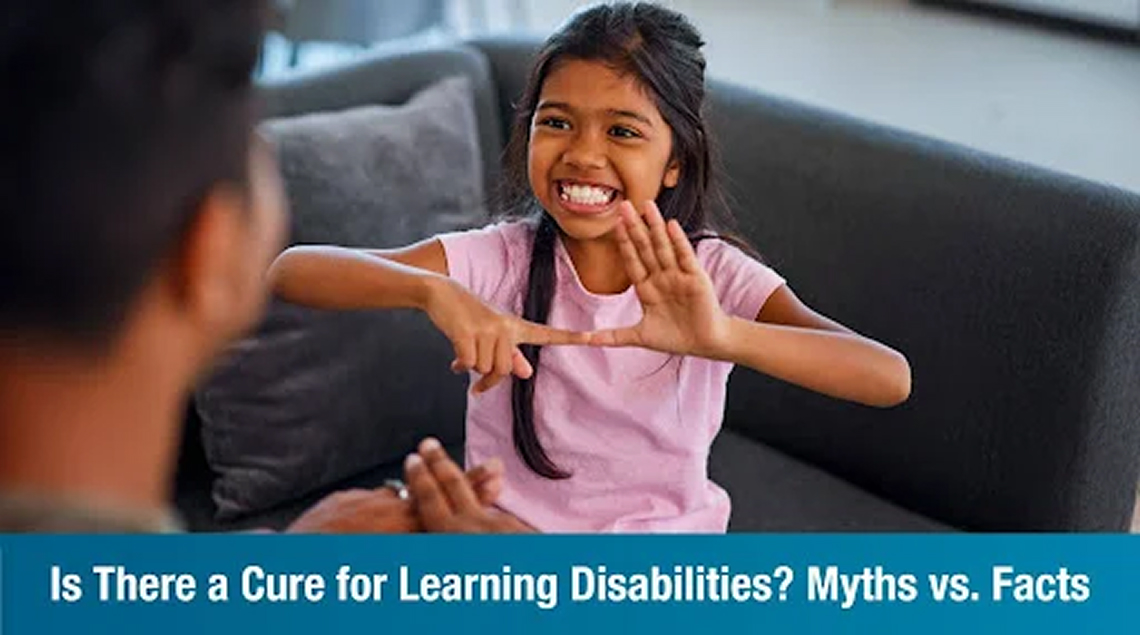
When it comes to learning disabilities, there’s a lot of misinformation out there. Some believe they can be cured, while others think they are just an excuse for poor performance. The truth is, learning disabilities aren’t a disease—they’re lifelong differences in how the brain processes information.
So, let’s separate myths from facts and explore how learning disabilities can be managed effectively.
Understanding Learning Disabilities
A learning disability (LD) affects how the brain receives, processes, or communicates information. It has nothing to do with intelligence—many individuals with learning disabilities are highly intelligent and creative but process information differently.
Some of the most common learning disabilities include:
- Dyslexia – Difficulty reading and spelling
- Dyscalculia – Struggles with math and numbers
- Dysgraphia – Trouble with writing and handwriting
- ADHD (Attention-Deficit/Hyperactivity Disorder) – Issues with focus, impulse control, and organization
- Auditory & Visual Processing Disorders – Trouble understanding spoken or written information
While learning disabilities don’t go away, with the right support, therapy, and learning strategies, individuals can adapt and succeed in school, work, and everyday life.
Common Myths About Learning Disabilities
There are plenty of misconceptions about learning disabilities. Let’s clear up a few:
Myth: Learning disabilities mean low intelligence
Fact: Learning disabilities affect how the brain processes information, not intelligence. Many people with LDs are gifted thinkers, problem solvers, and innovators.
Myth: Learning disabilities can be outgrown
Fact: Learning disabilities are lifelong, but with proper support and therapy, individuals can develop strong coping strategies.
Myth: ADHD and dyslexia are just excuses for laziness
Fact: These are real neurological conditions backed by research. People with LDs work just as hard but may need different learning methods.
Myth: Kids with learning disabilities won’t succeed
Fact: Many successful people—scientists, artists, business leaders—have learning disabilities. With the right support, anyone can reach their full potential.
Facts About ADHD, Dyslexia, and Other Learning Disabilities
Now that we’ve busted some myths, here are some key facts:
- Dyslexia affects about 10% of the population, making it one of the most common learning disabilities.
- ADHD is not just hyperactivity—many people struggle more with focus and organization than with being restless.
- Early intervention leads to better outcomes—the sooner learning challenges are addressed, the better the progress.
- Learning disabilities often run in families, suggesting a genetic link.
- Assistive tools like audiobooks, speech-to-text software, and structured learning techniques help children and adults learn more effectively.
How to Manage Learning Disorders Effectively
While learning disabilities can’t be cured, they can be managed successfully with the right strategies.
For Children
- Special Education Programs – Individualized Education Plans (IEPs) tailor learning to a child’s needs.
- Speech & Occupational Therapy – Helps with communication and fine motor skills.
- Assistive Technology – Tools like audiobooks, voice-to-text apps, and interactive learning games can make a big difference.
- Parental Support – Structured routines, positive reinforcement, and patience help children build confidence.
For Adults
- Workplace Accommodations – Flexible deadlines, digital note-taking, and time-management techniques improve productivity.
- Cognitive Behavioral Therapy (CBT) – Helps with focus, organization, and emotional regulation.
- Daily Planning Tools – Planners, reminders, and structured schedules improve time management.
- Focus on Strengths – Many adults with LDs excel in creative fields, entrepreneurship, and hands-on work.
With the right support and adjustments, learning disabilities don’t have to hold anyone back.
At Plexus Neuro Centre, we provide specialized therapy and customized rehabilitation programs to help individuals develop strategies that work for them. If you or your child needs guidance and expert support, we’re here to help.
WhatsApp: +91 89048 42087
Call: +91 78159 64668 (Hyderabad) | +91 93555 33404 (Bangalore)
FAQ’s
What are the biggest myths about dyslexia?
Dyslexia is just about reversing letters—It actually affects reading fluency, comprehension, and processing speed.










